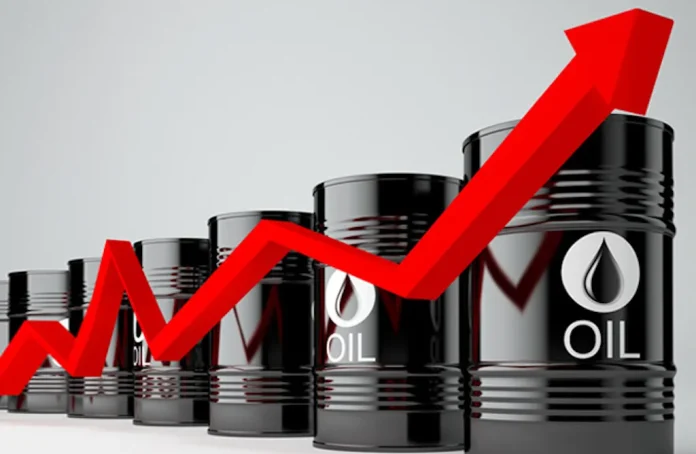Crude oil prices experienced a rebound in the global commodity market on Tuesday, despite ongoing trade tensions initiated by the U.S. and the Organization of Petroleum Exporting Countries (OPEC) and its allies (OPEC+) planning to boost output in May amid uncertainty.
Brent crude rose by approximately 0.3%, reaching $64.49 per barrel, up from $64.29 in the previous session. Similarly, the U.S. benchmark West Texas Intermediate (WTI) gained about 0.2%, settling at $60.95 per barrel, up from $60.80.
Oil prices had recently plunged to their lowest levels in four years following U.S. President Donald Trump’s announcement of stringent tariffs on several major economies. However, prices began to recover partially as investors sought to capitalize on the lower prices through profit-taking.
Trump’s protectionist trade policies continue to be a significant source of global uncertainty, with retaliatory actions from other countries elevating risk perceptions in the market. Trump, when asked if the tariffs were a permanent measure or part of a negotiation strategy, responded, “There can be permanent tariffs, and there can also be negotiations because there are things that we need beyond tariffs.”
Trump also reiterated that if China does not withdraw its 34% retaliatory tariffs, the U.S. would impose an additional 50% tariff on Chinese goods.
Meanwhile, EU Trade Commissioner Maros Sefcovic commented, “The U.S. tariffs now affect €380 billion ($416.8 billion) worth of EU exports—around 70% of the total—with duties ranging from 20% to over 25%. The current trade situation with the United States, our most significant partner, is in a tough spot.” Sefcovic added that the U.S. views these tariffs not as a tactical move but as a corrective measure and emphasized the EU’s willingness to negotiate when the U.S. is ready.
In the oil market, Saudi Arabia announced it would lower crude oil prices for Asian markets in May, marking the lowest level in the past four months.
This move follows an announcement from OPEC and the OPEC+ alliance, which includes both OPEC members and selected non-OPEC producers. The group revealed plans to accelerate its production increase, with output set to rise by 411,000 barrels per day in May, equating to a three-month increase.













